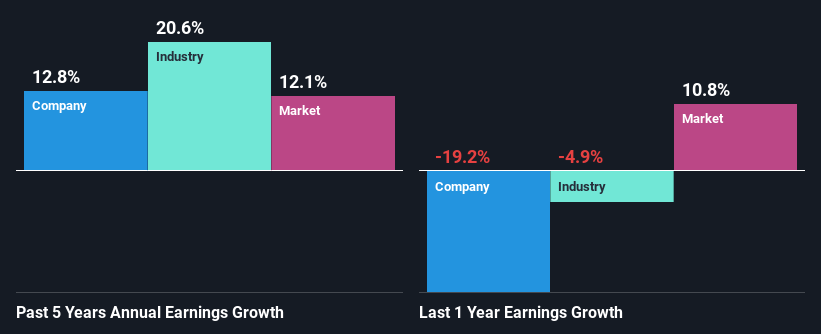Saudi Arabian Oil (TADAWUL:2222) has had a rough three months with its share price down 4.5%. However, the company’s fundamentals look pretty decent, and long-term financials are usually aligned with future market price movements. In this article, we decided to focus on Saudi Arabian Oil’s ROE.
Return on equity or ROE is an important factor to be considered by a shareholder because it tells them how effectively their capital is being reinvested. Simply put, it is used to assess the profitability of a company in relation to its equity capital.
Check out our latest analysis for Saudi Arabian Oil
How Do You Calculate Return On Equity?
ROE can be calculated by using the formula:
Return on Equity = Net Profit (from continuing operations) ÷ Shareholders’ Equity
So, based on the above formula, the ROE for Saudi Arabian Oil is:
27% = ر.س470b ÷ ر.س1.8t (Based on the trailing twelve months to September 2023).
The ‘return’ is the profit over the last twelve months. One way to conceptualize this is that for each SAR1 of shareholders’ capital it has, the company made SAR0.27 in profit.
What Is The Relationship Between ROE And Earnings Growth?
So far, we’ve learned that ROE is a measure of a company’s profitability. Depending on how much of these profits the company reinvests or “retains”, and how effectively it does so, we are then able to assess a company’s earnings growth potential. Assuming all else is equal, companies that have both a higher return on equity and higher profit retention are usually the ones that have a higher growth rate when compared to companies that don’t have the same features.
Saudi Arabian Oil’s Earnings Growth And 27% ROE
At first glance, Saudi Arabian Oil seems to have a decent ROE. Further, the company’s ROE compares quite favorably to the industry average of 12%. Probably as a result of this, Saudi Arabian Oil was able to see a decent growth of 13% over the last five years.
Next, on comparing with the industry net income growth, we found that Saudi Arabian Oil’s reported growth was lower than the industry growth of 21% over the last few years, which is not something we like to see.

Earnings growth is a huge factor in stock valuation. What investors need to determine next is if the expected earnings growth, or the lack of it, is already built into the share price. By doing so, they will have an idea if the stock is headed into clear blue waters or if swampy waters await. Is Saudi Arabian Oil fairly valued compared to other companies? These 3 valuation measures might help you decide.
Is Saudi Arabian Oil Efficiently Re-investing Its Profits?
Saudi Arabian Oil has a significant three-year median payout ratio of 71%, meaning that it is left with only 29% to reinvest into its business. This implies that the company has been able to achieve decent earnings growth despite returning most of its profits to shareholders.
Moreover, Saudi Arabian Oil is determined to keep sharing its profits with shareholders which we infer from its long history of four years of paying a dividend. Our latest analyst data shows that the future payout ratio of the company over the next three years is expected to be approximately 81%. As a result, Saudi Arabian Oil’s ROE is not expected to change by much either, which we inferred from the analyst estimate of 25% for future ROE.
Conclusion
On the whole, we do feel that Saudi Arabian Oil has some positive attributes. Its earnings have grown respectably as we saw earlier, which was likely due to the company reinvesting its earnings at a pretty high rate of return. However, given the high ROE, we do think that the company is reinvesting a small portion of its profits. This could likely be preventing the company from growing to its full extent. That being so, according to the latest industry analyst forecasts, the company’s earnings are expected to shrink in the future. To know more about the company’s future earnings growth forecasts take a look at this free report on analyst forecasts for the company to find out more.
Valuation is complex, but we’re helping make it simple.
Find out whether Saudi Arabian Oil is potentially over or undervalued by checking out our comprehensive analysis, which includes fair value estimates, risks and warnings, dividends, insider transactions and financial health.
Have feedback on this article? Concerned about the content? Get in touch with us directly. Alternatively, email editorial-team (at) simplywallst.com.
This article by Simply Wall St is general in nature. We provide commentary based on historical data and analyst forecasts only using an unbiased methodology and our articles are not intended to be financial advice. It does not constitute a recommendation to buy or sell any stock, and does not take account of your objectives, or your financial situation. We aim to bring you long-term focused analysis driven by fundamental data. Note that our analysis may not factor in the latest price-sensitive company announcements or qualitative material. Simply Wall St has no position in any stocks mentioned.

















